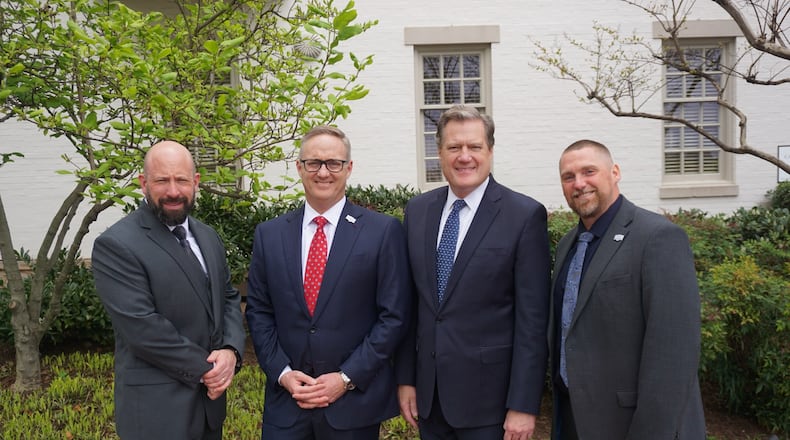“With the current immigration policy, it’s affecting cities like our city,” Rue said. “We’re trying to make sure that we’re doing it right as city leaders and bringing light to this. These populations are taxing our schools, taxing our healthcare system, and we just want to make sure it’s right.”
Rue, city manager Bryan Heck and deputy director of public safety and operations Jason Via all attended the multiple meetings, Rue said.
The Biden administration expanded the number of immigrants eligible for Temporary Protected Status, which Turner previously said opened the door for a large number of immigrants to come to Springfield without assistance or additional resources.
Rue said areas that have felt the most strain include housing, employment, safe transportation and health care. He said one-third of the babies born at Mercy Health — Springfield are Haitian.
Rocking Horse Community Health Center is also seeing a growth in infant visits, jumping from about 300 to 600 newborn appointments from 2022 to 2023, a third of which whose families are non-English speaking, chief medical officer Dr. Carol Barlage said.
Springfield City Schools is seeing about 40 new students per week, Rue said.
“If you take the $11,000 per student it costs to educate, you’re looking at $22 million,” Rue said.
Rue said the immigration response team is continuing to look into many aspects of immigration to Springfield, including how Haitians started coming to the city and if that started as a legal process.
“We understand some of the growth now can be organic, but if they came in an organized fashion, did they come in a legal organized fashion?” Rue said. “We only have so many resources that we can use to look into this, and we’re asking for help at the federal level to even look into all things immigration affecting cities like Springfield, Ohio.”
The federal government has expressed a willingness to work with and help the city, and several agencies with which the city met in D.C. will work on highlighting specific issues, providing some information to the city and other items, and will continue work with Springfield, Rue said.
“We’re going to continue to make sure that Springfield is known and what’s going on based on the current immigration policy,” Rue said.
About the Author

